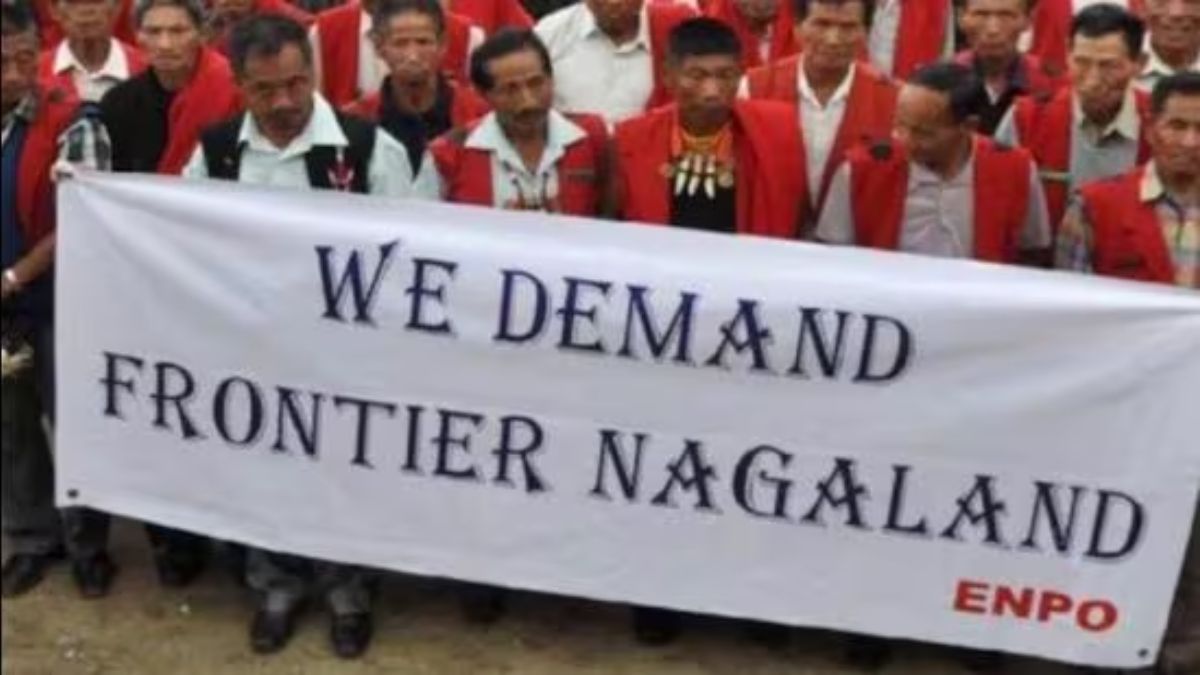- By Shivam Shandilya
- Sat, 25 Feb 2023 07:30 PM (IST)
- Source:JND
The Eastern Nagaland People's Organisation (ENPO), the apex tribal organisation of eastern Nagaland, demanded a separate state and had earlier threatened to boycott the assembly polls in the state scheduled to be held on Monday, if the demands were not met. However, after the Centre's assurance that their demands would be reviewed, the tribal group called-off their poll boycott call. The Union Home Ministry assured the ENPO, which has been demanding a separate "Frontier Nagaland" state, that the issue would be reviewed and resolved after the election process.
"The assurance was that a solution as mutually agreed, will be reached after following the due process and will be implemented after the completion of the election process," the home ministry said in a statement after the meeting.
Why ENPO is demanding a separate state?
The ENPO, which represents the seven Naga tribes of the districts of Mon, Tuensang, Kiphire, Longleng, Noklak, and Shamator, has been demanding a separate state of Frontier Nagaland, citing lack of attention and backwardness. The seven Naga tribes in the region include Konyak, Khiamniungan, Chang, Sangtam, Tikhir, Phom, and Yimkhiung. The six districts account for 20 of the 60 assembly seats. The demand for a new state is due in large part to the development deficit, and its creation will ensure development, as the group claims.
A new state, it is argued, will ensure development. "We have many Nagas, but we have two groups—one backward Naga and another advanced," said CL John, an MLA from eastern Nagaland, as quoted by Scroll. "So, this separate state movement is for the upliftment and welfare of the Nagas in eastern Nagaland," he added.
However, this is not the first time that the tribal group has demanded the creation of a separate state, and this issue has gained traction ahead of the assembly elections because the region's 20 MLAs have expressed their support for this demand and have threatened to boycott the polls in the past.
The history of Tuensang Area
The region was included under the North East Frontier Agency, which was an administrative unit established by the British, as the Tuensang Frontier Division. It was merged with the Naga Hills District of Assam in 1957, and the Tuensang Area was administered by the Governor of Assam and was under the control of the Centre's ministry of external affairs. The area became a part of the full-fledged state of Nagaland in 1963, but it was almost a decade later that the region was represented in the Nagaland Assembly and had its own region council, which was headed by the deputy commissioner. In 1973, the region entered the Assembly.
Why is Tuensang Area electorally important?
The region is important in the upcoming polls as it consists of one-third of the total number of seats in the legislative assembly. It has 20 MLAs, and besides legislators, the demand has gained strong popularity in the region. It is more important for the Bharatiya Janata Party (BJP), as the Union Minister and party's former president Nitin Gadkari promised in 2012 that if the party formed the government at the Centre in 2014, this demand would be fulfilled.
Nagaland CM Extends Support
Earlier, Nagaland Chief Minister Neiphiu Rio said that the demand for a separate state by the people of the eastern part of the state is "not wrong".
"Nagas, we speak our mind and it is not wrong for them (Eastern Nagaland people) to say what their thinking and desire is but all these issues will be resolved," Rio said, as quoted by news agency PTI.
However, Rio, amid the threats of boycotting the polls last month, expressed that 'good sense' would prevail among the seven tribes of the state.
"I have nothing to say about their decision. But in a democracy, elected representatives are required to form a government. I hope good sense will prevail," said Rio.

